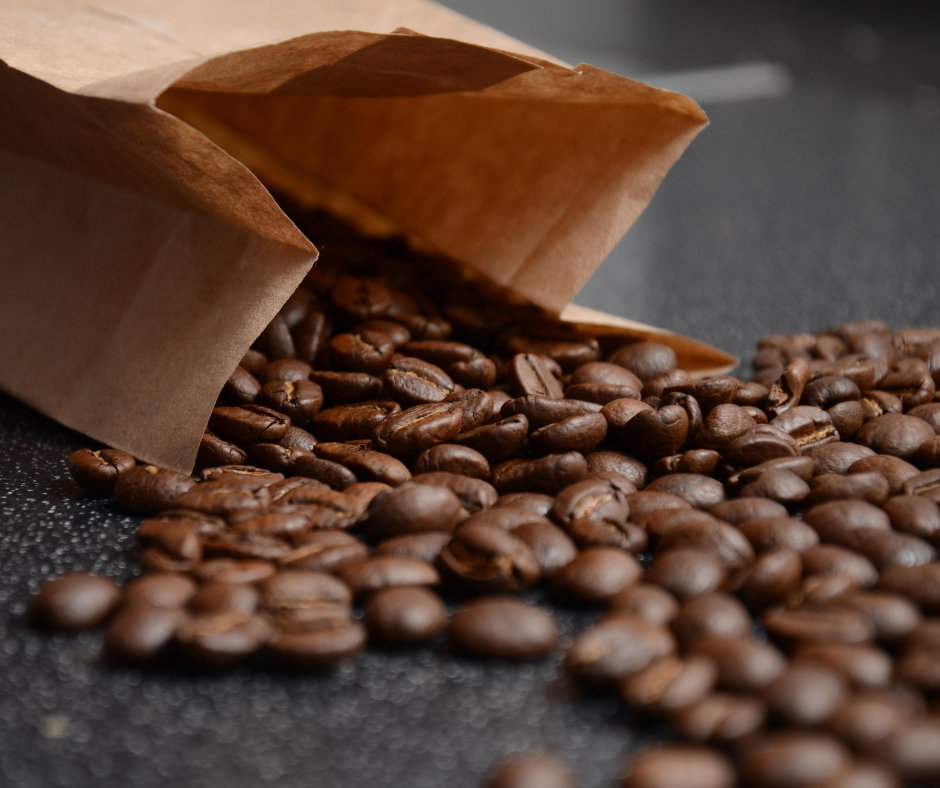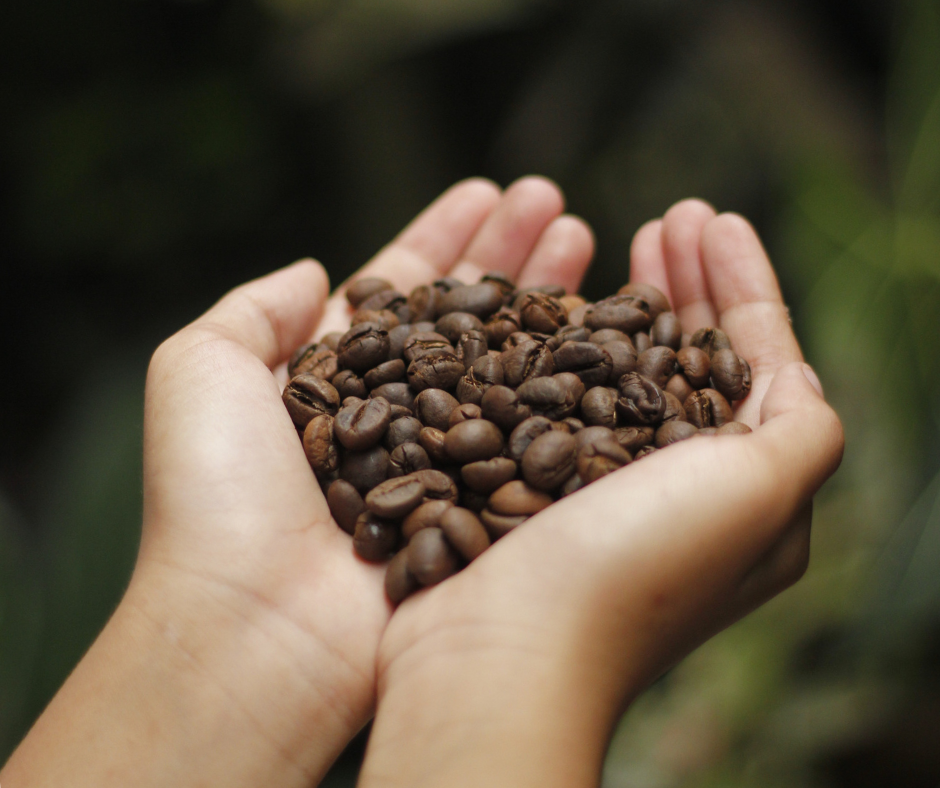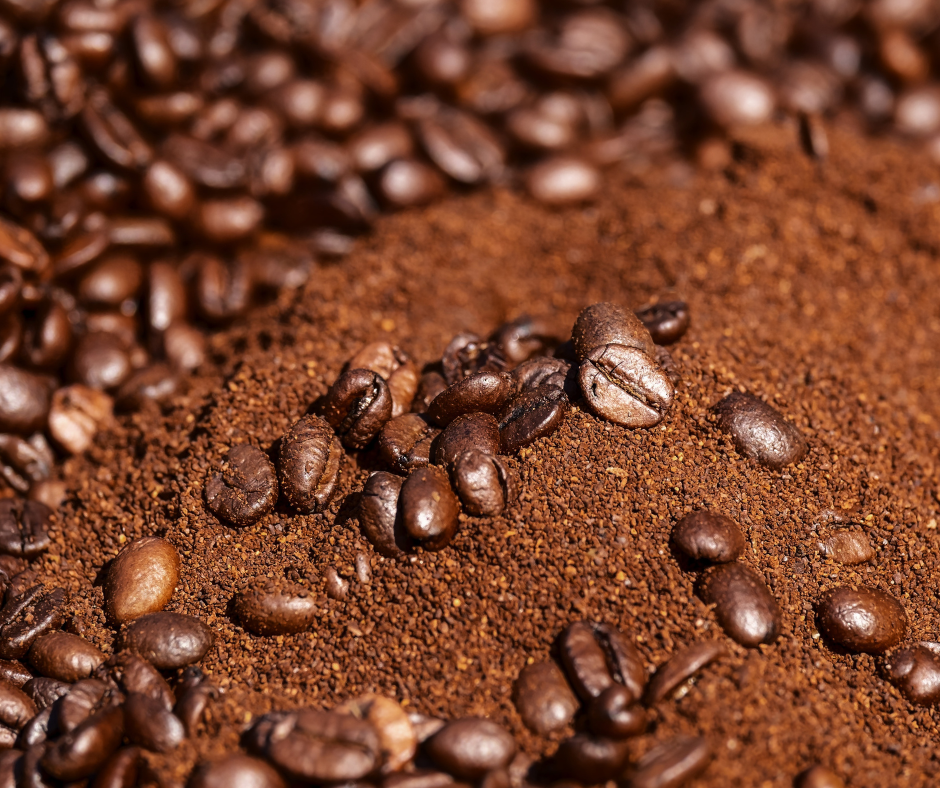Introduction
Overview Of Coffee Expiration And Its Impact On Taste And Quality
Coffee is a widely consumed beverage known for its stimulating effects and rich aroma. However, Can Coffee Expire? Like any organic product, coffee has a limited shelf life, and its taste and quality can deteriorate over time. Coffee enthusiasts and industry professionals must understand the factors contributing to coffee expiration and how they affect taste and quality.
Factors That Contribute To Coffee Shelf Life
Several factors play a significant role in determining the shelf life of coffee. These include:
- Roasting level: The degree of roasting greatly affects the longevity of coffee. Lightly roasted coffee has a shorter shelf life than dark-roasted coffee. Light roasts retain more moisture, making them more susceptible to spoilage.
- Packaging: How coffee is packaged is crucial in determining its shelf life. Properly sealed, airtight packaging helps maintain coffee’s freshness by preventing moisture, air, and light exposure. Vacuum-sealed bags or containers with one-way valves are commonly used to prolong the shelf life of coffee.
- Storage conditions: Coffee should be stored optimally to preserve its taste and quality. Factors such as temperature, humidity, and exposure to sunlight can accelerate the deterioration of coffee. It is recommended to store coffee in a cool, dry place away from direct sunlight and extreme temperature fluctuations.
- Grinding: Whole-bean coffee tends to have a longer shelf life than pre-ground coffee. This is because grinding exposes more surface area, allowing the coffee to come into contact with air and moisture, causing it to stale more quickly.
- Moisture content: Moisture is the enemy of coffee freshness. Coffee beans should contain around 10 to 12% moisture to prevent mold and bacteria growth. Excessive moisture can lead to an unpleasant taste and aroma.
In conclusion, various factors contribute to the expiration of coffee and its impact on taste and quality. Roasting level, packaging, storage conditions, grinding, and moisture content are crucial in determining how long coffee remains fresh. By understanding these factors and implementing proper storage and handling practices, coffee lovers can ensure that they enjoy a delicious cup of coffee with optimal taste and quality.
Determining Coffee Freshness
Understanding The Concept Of Coffee Freshness
Coffee freshness refers to the overall quality and taste of the coffee, which various factors can influence. Understanding the concept of coffee freshness is important to ensure that you are brewing and consuming the best cup of coffee possible.
Assessing The Aroma And Flavor Of Coffee To Determine Freshness
The aroma and flavor of coffee are key indicators of its freshness. When coffee is fresh, it should have a strong and pleasant aroma, with notes corresponding to its origin and roast level. As coffee ages, its aroma can become dull or stale, and the flavors may lose their complexity.
To assess the freshness of coffee, follow these steps:
- Smell the coffee: Take a deep breath and inhale the aroma of the coffee. Fresh coffee should have a strong and inviting scent. If the aroma is weak or unpleasant, it may indicate that the coffee is past its prime.
- Taste the coffee: Take a small sip and let it linger on your palate. Fresh coffee will have a balanced and full-bodied flavor with distinct notes and a pleasant aftertaste. If the flavors are muted or the coffee tastes flat, it may be a sign that the coffee has expired.
- Look for signs of staleness: Visually inspect the coffee grounds or beans. Fresh coffee should have a rich color and a glossy appearance. The coffee may have lost its freshness if it appears dull or dry.
Remember that coffee freshness can vary depending on roast level, packaging, and storage conditions. It is best to store freshly roasted beans properly to maximize their freshness.
By understanding how to assess the aroma and flavor of coffee, you can determine its freshness and ensure that you are enjoying the best possible cup of coffee every time. Experiment with different roasts and brewing methods to find your perfect brew. Happy brewing!
Can Coffee Expire: Coffee Beans Shelf Life
Factors That Affect The Shelf Life Of Coffee Beans
So, Can Coffee Expire? The answer is yes. The shelf life of coffee beans can vary depending on several factors, including:
- Roast level: Lightly roasted beans tend to have a shorter shelf life than darker roasts as they are more susceptible to oxidation.
- Packaging: Coffee beans should be stored in airtight containers to prevent exposure to air and moisture, which can accelerate the deterioration process.
- Storage conditions: Beans should be stored in a cool, dry place away from direct sunlight and strong odors, as they can affect the flavor and freshness of the coffee.
- Freshness at purchase: The age of the beans at the time of purchase can also impact their overall shelf life.
Signs Of Expired Coffee Beans
It’s important to identify signs of expired coffee beans to ensure you’re brewing and consuming the best cup of coffee possible. Here are some common indications that your coffee beans may have expired:
- Stale smell: If the coffee lacks a strong and inviting aroma or smells musty or rancid, it may be a sign that the beans have gone stale.
- Flat taste: Expired coffee beans may produce a flat and uninteresting flavor profile, lacking fresh beans’ complexity and nuances.
- Dull appearance: Inspect the beans for any signs of dullness or discoloration. Fresh beans should have a rich color and a glossy appearance; if they appear dry or discolored, they are likely past their prime.
It’s worth noting that coffee beans can still be used past their expiration date, but they won’t deliver the same optimal taste experience as fresh beans. To maximize freshness, buy beans in smaller quantities and grind them just before brewing. Storing beans properly in airtight containers and using them within a few weeks of roasting can help maintain their quality for longer. So, assess the freshness of your coffee beans using your senses to ensure a flavorful and enjoyable cup of coffee every time you brew.
Ground Coffee Shelf Life
How Long Can Ground Coffee Stay Fresh
The shelf life of ground coffee can vary depending on several factors, including the quality of the beans, packaging, and storage conditions. Ground coffee can stay fresh for several months to a year if stored properly. However, it’s important to note that the flavor and aroma of the coffee will gradually deteriorate over time.
Factors That Accelerate The Deterioration Of Ground Coffee
Several factors can accelerate the deterioration of ground coffee and reduce its shelf life:
- Air exposure: Ground coffee is more susceptible to oxygen exposure than whole beans. Oxygen can cause the coffee to go stale and lose its flavor and aroma.
- Moisture: Ground coffee can absorb environmental moisture, leading to mold growth and spoilage. It’s crucial to store ground coffee in a dry place to prevent moisture absorption.
- Heat: Exposure to high temperatures can also accelerate the deterioration of ground coffee. It’s important to store ground coffee away from heat sources and direct sunlight to maintain its freshness.
- Quality of the beans: The freshness of the beans used to make the ground coffee can impact its shelf life. Beans that were not properly stored or have been sitting for a long time before grinding may result in a shorter shelf life for the ground coffee.
To ensure that your ground coffee stays fresh for as long as possible, it is recommended to:
- Store ground coffee in an airtight container to minimize exposure to air and moisture.
- Keep the container in a cool, dry place, away from direct sunlight and strong odors.
- Buy coffee in smaller quantities and grind it before brewing to maximize freshness.
- Check the expiration date on the packaging and use the coffee within a few weeks of the roast date for optimal taste.
By following these guidelines and understanding the factors that can affect the shelf life of ground coffee, you can enjoy a flavorful and satisfying cup of coffee every time.
Proper Storage Methods
The Importance Of Proper Coffee Storage
Proper coffee storage is essential to maintain the freshness and quality of ground coffee. By understanding the factors that can accelerate the deterioration of coffee and implementing the best storage practices, you can prolong its shelf life and enjoy a consistently delicious cup every time.
Best Practices For Storing Coffee Beans And Grounds
To ensure the longevity of your ground coffee, here are some best practices for storage:
- Purchase coffee in smaller quantities: Buying coffee in smaller quantities ensures that you consume it within a reasonable time frame and reduces the chances of it sitting unused for too long.
- Store in an airtight container: Invest in an airtight container to store your ground coffee. This will help minimize exposure to air, which can quickly cause the coffee to go stale.
- Keep it away from moisture: Moisture is an enemy of coffee freshness. Store your ground coffee in a cool, dry place to prevent mold growth and spoilage. Avoid storing it in the fridge or freezer, as the fluctuating temperatures can negatively impact the flavor.
- Protect from heat and light: Ground coffee should be shielded from heat sources and direct sunlight. Both heat and light can accelerate the degradation of coffee and diminish its flavor and aroma.
- Grind just before brewing: For the freshest cup of coffee, consider grinding the beans yourself before brewing. This ensures maximum flavor extraction and maintains the coffee’s freshness for longer.
- Check the expiration date: Pay attention to the expiration date on the coffee packaging. Use the coffee within a few weeks of the roast date for optimal taste.
By following these storage practices, you can maximize the shelf life of your ground coffee and enjoy a consistently flavorful cup of joe. Remember that the fresher the coffee, the better the taste, so prioritize freshness by implementing these storage methods.
Extending The Shelf Life Of Coffee
Tips For Prolonging The Freshness Of Coffee Beans And Grounds
Proper storage methods are crucial for maintaining the freshness and quality of coffee beans and grounds. By understanding the factors contributing to the deterioration of coffee and implementing the best storage practices, you can extend its shelf life and ensure a consistently delicious cup every time. Here are some tips for prolonging the freshness of coffee:
- Purchase coffee in smaller quantities: Buying coffee in smaller quantities ensures you consume it within a reasonable time frame. This reduces the chances of it sitting unused for too long, which can lead to staleness.
- Store in an airtight container: Investing in an airtight container is essential for preserving the freshness of your coffee. Minimizing exposure to air can prevent the coffee from going stale quickly.
- Keep it away from moisture: Moisture is the enemy of coffee freshness. Storing ground coffee in a cool, dry place prevents mold growth and spoilage. Avoid storing it in the fridge or freezer, as the fluctuating temperatures can negatively impact the flavor.
- Protect from heat and light: Ground coffee should be shielded from heat sources and direct sunlight as both can accelerate the degradation of coffee and diminish its flavor and aroma. Store it in a dark cupboard or pantry, away from any heat source.
- Grind just before brewing: For the freshest cup of coffee, consider grinding the beans yourself before brewing. This ensures maximum flavor extraction and maintains the coffee’s freshness for longer. Pre-ground coffee has a larger surface area exposed to air, causing it to go stale faster.
- Check the expiration date: Pay attention to the expiration date on the coffee packaging. Use the coffee within a few weeks of the roast date for optimal taste, as fresher coffee tends to have more nuanced flavors.
How To Maintain Flavor And Aroma Over Time
To maintain the flavor and aroma of your coffee over time, prioritize freshness and proper storage. In addition to the tips mentioned above, here are some additional steps you can take:
- Avoid buying pre-ground coffee: Whole bean coffee retains its freshness for longer than pre-ground coffee. Consider investing in a coffee grinder to grind the beans just before brewing.
- Store coffee away from strong odors: Coffee can absorb strong odors from its surroundings. To preserve its flavor, keep it away from items with powerful scents, such as spices or cleaning products.
- Use an opaque container: Coffee beans and grounds should be stored in an opaque container to protect them from light exposure. This helps preserve the flavors and oils, ensuring a more enjoyable cup of coffee.
- Avoid freezing coffee: While freezing coffee can extend its shelf life, it is not recommended as it can affect the flavor and aroma. If you must freeze coffee, ensure it is stored in an airtight container and only freeze it once to minimize negative effects.
By following these tips, you can maintain the flavor and aroma of your coffee beans and grounds for longer. Enjoy a consistently satisfying cup of coffee by prioritizing freshness and proper storage methods.
Recognizing Expired Coffee
Indicators That Coffee Has Gone Bad
Recognizing when coffee has gone bad is important to avoid consuming a subpar or potentially harmful beverage. Here are some indicators that your coffee has expired:
- Off smell: Expired coffee may have a stale or rotten smell. If the aroma is no longer pleasant or has changed significantly, it is a sign that the coffee is past its prime.
- Mold or visible spoilage: If you notice mold growth or discoloration in the coffee beans or grounds, it indicates that the coffee has spoiled and should not be consumed.
- Bad taste: Expired coffee may have an unpleasant bitter or acidic taste. If the flavor is off or lacks the usual richness and complexity, it is a sign that the coffee is no longer fresh.
- Inconsistent brewing: If the coffee no longer brews consistently or produces a weak and watery cup, it could indicate that it has lost its freshness and quality.
Effects Of Consuming Expired Coffee
Consuming expired coffee may negatively affect your health and overall coffee experience. Here are some potential effects:
- Reduced flavor and aroma: Expired coffee will likely have diminished flavors and aromas, resulting in a less enjoyable drinking experience.
- Increased bitterness: As coffee degrades, it may become more bitter, making it unappealing to drink.
- Possible health risks: Consuming expired coffee with mold or bacteria growth can lead to stomach discomfort, food poisoning, or other health issues.
- Wasted resources: Drinking expired coffee means wasting the time, effort, and money spent in brewing it, as the flavors are likely to be unsatisfactory.
It is important to prioritize the freshness of your coffee and ensure that you are brewing with beans or grounds that are within their recommended shelf life. By recognizing the indicators of expired coffee and understanding the potential negative effects, you can make informed decisions about whether to continue using or discard your coffee.
Recycling Expired Coffee
Creative Ways To Use Expired Coffee Grounds
Expired coffee grounds can still be used in various ways, even if they are no longer suitable for brewing coffee. Here are some creative ways to recycle expired coffee grounds:
- Gardening: Coffee grounds can be added to your soil as a natural fertilizer. They can help improve the soil’s texture, retain moisture, and provide plant nutrients. You can sprinkle the grounds around your plants or mix them into your compost pile.
- Exfoliating scrub: Coffee grounds can be a gentle exfoliator for the skin. You can mix them with a carrier oil or a moisturizing lotion to create a homemade scrub that can remove dead skin cells and leave your skin feeling smooth.
- Odor neutralizer: Coffee grounds can absorb and eliminate odors. You can place a small bowl of coffee grounds in your refrigerator or pantry to help absorb unwanted smells. They can also deodorize your hands after handling pungent foods like garlic or fish.
- Cleaning agent: Coffee grounds can be used as an abrasive cleaner for pots, pans, and other surfaces. The grounds can help remove stubborn stains and grease. Mix the grounds with water or dish soap to create a paste and scrub away.
- Hair treatment: Coffee grounds can be used as a natural hair treatment to add shine and enhance hair color. You can mix the grounds with your regular shampoo or conditioner or create a coffee rinse by steeping the grounds in hot water and then using the infused water as a hair rinse after shampooing.
Eco-friendly Disposal Options For Expired Coffee Beans
If you have expired whole coffee beans that are no longer suitable for brewing, there are eco-friendly disposal options to consider:
| Option | Description |
|---|---|
| Compost | Add the coffee beans to your compost pile. Coffee beans are organic matter and can contribute to the nutrient content of your compost. |
| Give away | If the coffee beans are still within a reasonable timeframe from expiration, consider giving them to a friend, neighbor, or local community center that might be able to use them. |
| Donate | Check with local organizations or food banks if they accept expired coffee beans. Some may be able to use them for various purposes. |
| Repurpose | If you enjoy crafting or DIY projects, you can repurpose coffee beans for decorative purposes. They can be used in art projects, as part of candle holders, or as vase fillers. |
With these recycling and disposal options, you can give expired coffee a new purpose and minimize waste.
Conclusion
Summary Of Key Points Discussed
Now you should know the answer to ‘Can Coffee Expire?’. This article explored creative ways to recycle expired coffee grounds and eco-friendly disposal options for expired coffee beans. Here’s a recap of the key points:
- Expired coffee grounds can be used as a natural fertilizer for gardening, as an exfoliating scrub for the skin, as an odor neutralizer, as a cleaning agent, and as a hair treatment.
- When it comes to eco-friendly disposal of expired coffee beans, you can compost them, give them away to someone who can use them, donate them to local organizations or food banks, or repurpose them for decorative purposes.
- By finding alternative uses for expired coffee grounds and beans, we can minimize waste and give them a new purpose.
Final Thoughts On The Shelf Life Of Coffee Beans And Grounds
While coffee beans and grounds have a shelf life, it’s important to remember that they can still have value even after they have expired for brewing a fresh cup of coffee. We can extend their lifespan and minimize our environmental impact by exploring creative ways to recycle and repurpose them.
Whether using expired coffee grounds in gardening, beauty routines, or household cleaning or finding eco-friendly disposal options for expired coffee beans, there are plenty of ways to give them a new purpose.
So, the next time you find yourself with expired coffee beans or grounds, don’t immediately discard them. Instead, consider the options mentioned in this article and give them a chance to be useful again.
Remember, reducing waste and being mindful of our consumption habits are small steps we can take towards a more sustainable future. Let’s make the most out of every item and contribute to a healthier planet.
FAQ – Can Coffee Expire: Understanding the Shelf Life of Coffee Beans and Grounds
Q: Can Coffee Expire?
A: Yes, coffee can expire, but it is more accurate to say that it loses its freshness over time. Coffee beans and grounds are perishable products that can deteriorate in quality and flavor if not stored properly.
Q: How long does coffee stay fresh?
A: The freshness of coffee depends on whether it is in the form of whole beans or grounds. Whole beans generally stay fresh for a longer time compared to pre-ground coffee. On average, coffee beans retain freshness for about 9 to 12 months when stored appropriately. Ground coffee, on the other hand, will start to lose its flavor and aroma within a few weeks.
Q: What factors affect the shelf life of coffee?
A: Several factors can impact the shelf life of coffee, including exposure to air, moisture, heat, and light. Oxygen in the air can cause coffee to oxidize, leading to a stale taste. Moisture can result in mold or mildew growth. Heat and light can accelerate the oxidation process and degrade the quality of the coffee.
Q: How should coffee be stored to maintain its freshness?
A: To maintain the freshness of coffee, it should be stored in an airtight container made of glass or stainless steel. The container should avoid direct sunlight, heat sources, and excessive moisture. It is best to store coffee beans or grounds in a cool, dark, and dry place, such as a pantry or cupboard.
Q: Does freezing coffee preserve its freshness?
A: Freezing coffee can help extend its shelf life, but it is essential to do it correctly. Coffee should be stored in airtight bags or containers to prevent moisture and odors from seeping in. Before using frozen coffee, it should be allowed to thaw completely to avoid condensation. However, it is generally recommended to only freeze whole beans and not pre-ground coffee, as the latter can lose its flavor more quickly.
Q: How can one tell if coffee has gone bad?
A: When coffee goes bad or becomes stale, its aroma and flavor deteriorate significantly. It may smell musty or rancid, and the taste will be stale or flat. If you notice any of these signs, it is best to discard the coffee and brew a fresh batch.
Q: Can expired coffee be harmful to consume?
A: Expired coffee is generally not harmful to consume but can taste unpleasant. However, it is best to avoid drinking if there are visible signs of mold or an off smell. Consumption of moldy coffee can cause digestive issues or, in rare cases, allergic reactions.
Q: Is it better to buy whole-bean coffee or pre-ground coffee?
A: Whole-bean coffee is fresher and more flavorful than pre-ground coffee. When coffee beans are ground, they expose more surface area to oxygen, causing them to lose their freshness more quickly. Buying whole-bean coffee and grinding it before brewing ensures a fresher and more flavorful cup.
In summary, coffee expires but loses its freshness over time, especially when exposed to air, moisture, heat, and light. Proper storage in airtight containers, away from unfavorable conditions, can help maintain its quality. Freezing whole beans can extend their shelf life, but pre-ground coffee should be used within a few weeks for optimal flavor. If coffee smells musty or tastes stale, it is best to discard it and brew a fresh batch.




